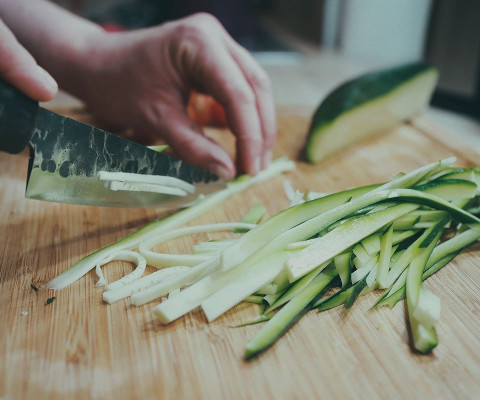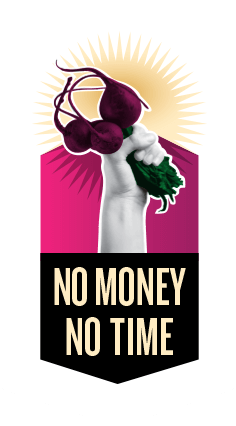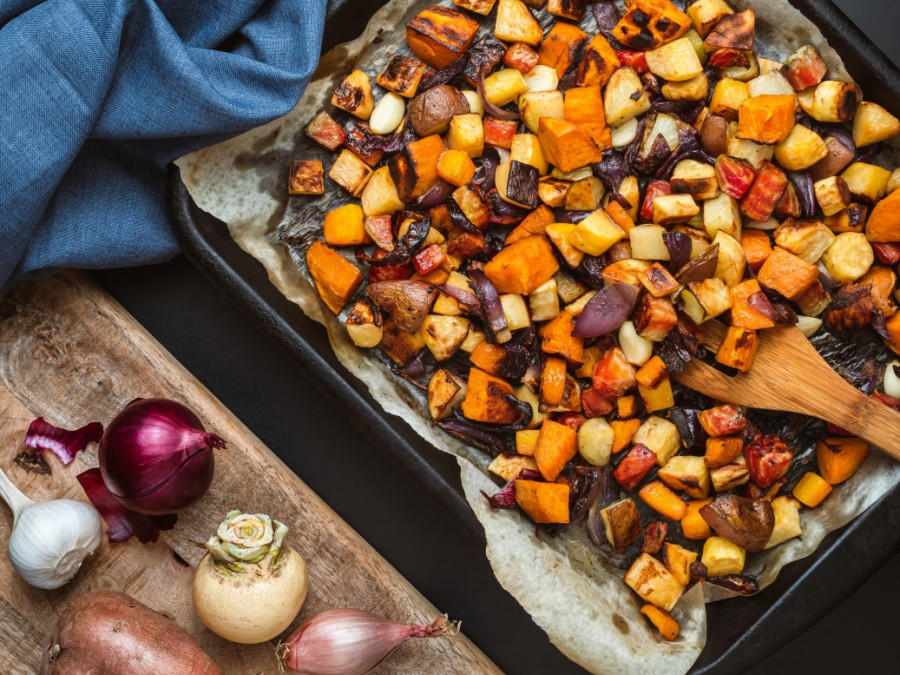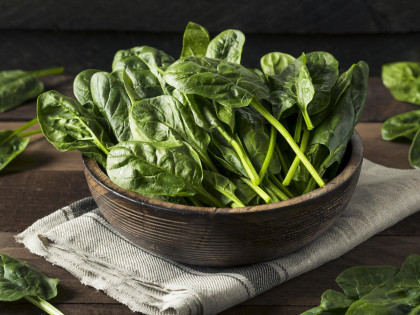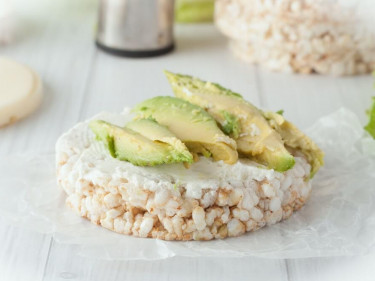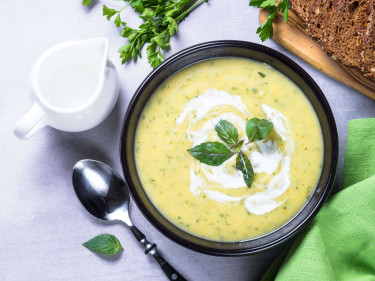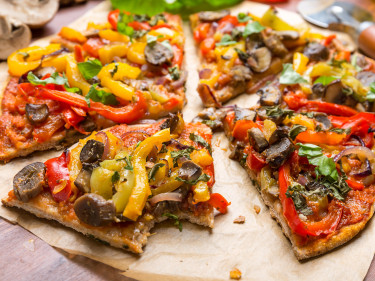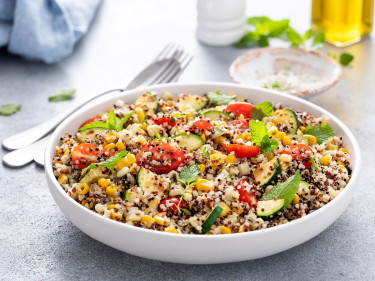Serves = 4
1 medium eggplant, chopped into 2–3 cm chunks
2 cups pumpkin, peeled and cut into 2–3 cm chunks
1 block unflavoured tempeh (approx. 300g), cubed
For the glaze:
¼ cup olive oil
2 tablespoons balsamic vinegar
1 tablespoon honey
3–4 garlic cloves, crushed
½ teaspoon chili flakes (optional)
